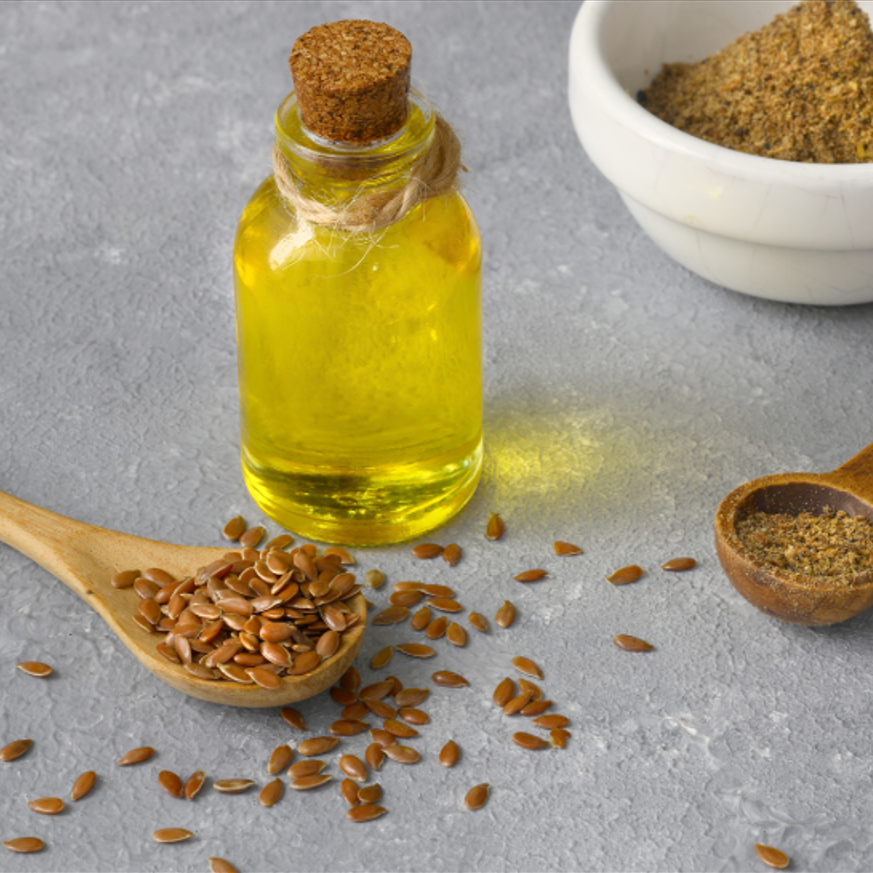Following a plants-only diet often comes along with the question about lack of nutrients which allegedly are only available in dairy, fish, meat etc. Omega 3 fatty acids are a famous example. They are polyunsaturated fatty acids and vital for the human body, which means that theses acids have to be consumed since the body cannot create them out of other nutrients. There are short and long-chain Omega 3 fatty acids. A short-chain part of Omega 3 is Alpha-linolenic acid (AHA). It is highly available in linseed oil, hemp oil, chia oil, walnut oil or the corresponding seeds and nuts.
Eicosapentaenoic acid (EPA) and docosahexaenoic acid (DHA) are the best known long-chain Omega 3 fatty acids and are available in sea fish and corresponding fish oils. These fish are rich in Omega 3 fatty acids because they eat algae containing Omega 3 fatty acids. Following the source of the Omega 3 is not the fish but the algae – a plant.
The human body needs both, the short-chain AHA and the long-chain EPA, DHA etc. For our organism it is possible to change EPA and DHA into AHA, but not the other way around.
Following a well-balance plant-based diet and getting Omega 3 fatty acids from seeds and nuts instead of fish, provides us with the essential EPAs, DHAs and in addition also with the Alpha-linolenic acid (AHA) which are not available in Omega 3 fatty acids from sea fish.
Omega 3 fatty acids are just one example on which we can see that those nutrients, allegedly only available in dairy, fish and meat, always have their origin in plants from nature. There is no need to drink a lot of cow’s milk to get calcium. The cow eats grass all day. It gets the minerals from nature.

Whether we talk about minerals, fatty acids, proteins etc. these nutrients always come in a for the body more complete and well-balanced way from plants than form animals. Animals got everything from nature and transformed it to a level which is suitable for the specific animal, not for us humans. Our gut microbiome, microbes from plants we eat, etc. take care that we get the right nutrients out of the plants and can properly absorb them.
